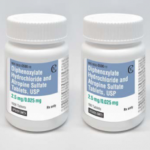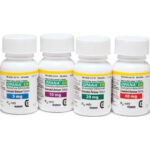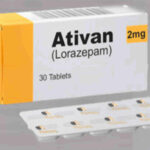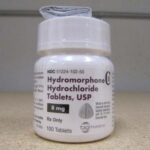Naltrexone: Uses, Side Effects, Abuse, Addiction

Naltrexone, sold under the brand names ReVia and Vivitrol among others, belongs to a class of medications called opiate antagonists. It works by decreasing the craving for alcohol and blocking the effects of opiate medications and opioid street drugs. Naltrexone was first synthesized in 1963 by Endo Laboratories, which was acquired by DuPont in 1969. Naltrexone was initially developed to treat addiction to opioids and was approved by the U.S. Food and Drug Administration (FDA) for the treatment of addiction to drugs such as heroin, morphine, and oxycodone in 1984.
Naltrexone is not classified as a controlled substance. It’s a full opioid antagonist that blocks euphoric actions at the opioid receptor (meaning it can’t lead to a “high” or addiction). It is used as one part of the treatment plan of patients with alcohol dependence or opioid use disorder, along with counseling. Naltrexone should not be used to treat people who are still using street drugs or drinking large amounts of alcohol.
How should naltrexone be used?
Naltrexone comes as a tablet to take by mouth either at home or under supervision in a clinic or treatment center. When naltrexone is taken at home, it is usually taken once a day with or without food. When naltrexone is taken in a clinic or treatment center, it may be taken once a day, once every other day, once every third day, or once every day except Sunday. Follow the directions on your prescription label carefully, and ask your doctor or pharmacist to explain any part you do not understand. Take naltrexone exactly as directed. Do not take more or less of it or take it more often than prescribed by your doctor.
Naltrexone is only helpful when it is used as part of an addiction treatment program. It is important that you attend all counseling sessions, support group meetings, education programs, or other treatments recommended by your doctor.
Naltrexone will help you avoid using drugs and alcohol, but it will not prevent or relieve the withdrawal symptoms that may occur when you stop using these substances. Instead, naltrexone may cause or worsen withdrawal symptoms. You should not take naltrexone if you have recently stopped using opioid medications or opioid street drugs and are now experiencing withdrawal symptoms.
Naltrexone will help you avoid drugs and alcohol only as long as you are taking it. Continue to take naltrexone even if you feel well. Do not stop taking naltrexone without talking to your doctor.
What side effects can this medication cause?
Naltrexone may cause side effects. Tell your doctor if any of these symptoms are severe or do not go away:
- nausea
- vomiting
- stomach pain or cramping
- diarrhea
- constipation
- loss of appetite
- headache
- dizziness
- anxiety
- nervousness
- irritability
- tearfulness
- difficulty falling or staying asleep
- increased or decreased energy
- drowsiness
- muscle or joint pain
- rash
Some side effects can be serious. If you experience any of these symptoms call your doctor immediately:
- confusion
- hallucinations (seeing things or hearing voices that do not exist)
- blurred vision
- severe vomiting and/or diarrhea
Naltrexone may cause other side effects. Call your doctor if you have any unusual problems while taking this medication.
Naltrexone Safety Information
Naltrexone may cause liver damage when taken in large doses. It is not likely that naltrexone will cause liver damage when taken in recommended doses. Tell your doctor if you have or have ever had hepatitis or liver disease. If you experience any of the following symptoms, stop taking naltrexone and call your doctor immediately: excessive tiredness, unusual bleeding or bruising, loss of appetite, pain in the upper right part of your stomach that lasts more than a few days, light-colored bowel movements,dark urine, or yellowing of the skin or eyes.
Keep all appointments with your doctor and the laboratory. Your doctor may order certain laboratory tests to check your body’s response to naltrexone. Talk to your doctor about the risks of taking naltrexone.




